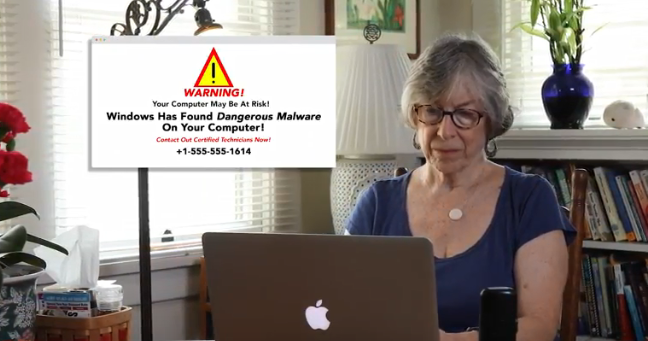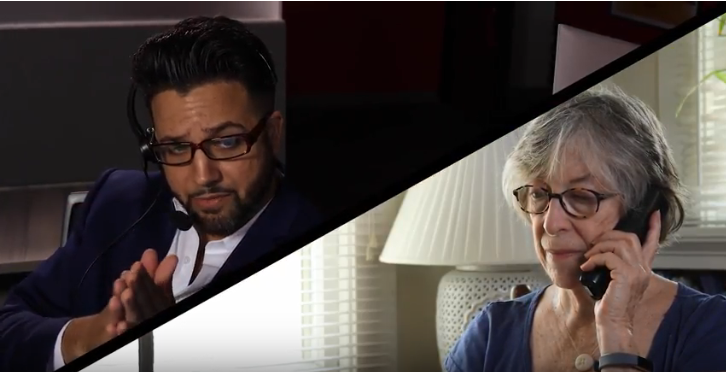AARP Hearing Center

Tech support scams have lurked online for years. They often come in the guise of a pop-up message on your computer screen, claiming you have viruses, and malware or spyware on your computer. The pop-ups come with a phone number to call for assistance. The operator convinces you to buy hundreds of dollars of tech support services you don't need.
In a more recent twist, scammers may cold call you claiming to be from a major computer company, and they may request to remote access your computer to fix the problem. Check out he informative video below to learn what you can look out for to avoid becoming a tech scammer's next victim.
Please share this important clip with your friends and family, so they too know what to look for to avoid being victimized by fraud.
How It Works: 
- The caller convinces the target that his computer is infected and asks for remote access to the device to fix the problem.
- The scammer’s goal is to gain remote access to your device, and once in, claims to find multiple viruses or malware that he can fix for a fee.
- The scammer will ask for a form of payment, usually a credit card or wire transfer.
What You Should Know:
- The Federal Trade Commission reports that thousands of people have lost hundreds of dollars to this scam. Last fall, the FTC shut down a business operating as Global Connect for running this scam, but scammers are again using this company name to target victims.

- If you get a tech support call out of the blue, hang up.
- Never give control of your computer to someone who calls you.
- Report scams like this to www.ftc.gov/complaint and let others know about it on our scam-tracking map.
When it comes to fraud, vigilance is our number one weapon. You have the power to protect yourself and your loved ones from scams. Please share this alert with friends and family.
P.S. Spotted a scam? Tell us about it. Our scam-tracking map gives you information about the latest scams targeting people in your state. You’ll also find first-hand accounts from scam-spotters who are sharing their experiences so you know how to protect yourself and your family.































































